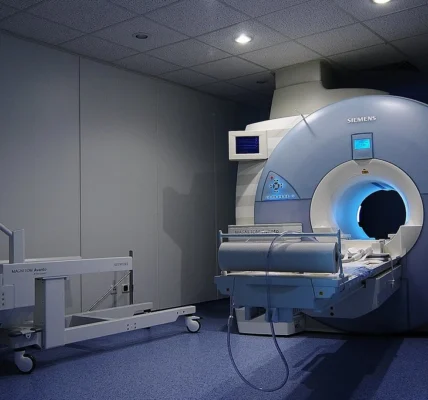How to Convert Bachelor’s in Audio Production to Information Technology; however, with some skills involved, it seems more achievable. Technical problem-solving, software expertise, and the creativity of producing audio are always valuable assets when it comes to IT roles. This blog guides you through these steps to understand how to take this transition while identifying transferable skills and further education or certifications, if needed.
Understanding Transferable Skills
Your audio production background has equipped you with skills that can be very well transferred into the IT industry. Below are some key transferable skills to leverage.
1. Technical Proficiency
Audio production normally requires working with sophisticated hardware and software, hence equipping you with a solid technical foundation useful for coding, system management, or troubleshooting in the IT industry.
2. Problem-Solving
Audio troubleshooting skills hone the complex problem-solving ability, which is very crucial for any Information Technology person in a job such as network administration or technical support.
3. Attention to Detail
You are either fine-tuning an audio mix or debugging your code; these require attention to detail, resulting in quality deliverables in each of the respective fields.
4. Project Management
It requires you to have a plan and organizational skills with some essence of collaboration elements that form the most precious IT project skill sets, in most cases.
It may also enable one to understand the transferable skills and thus better express them—which, ultimately, establishes them as an ideal candidate within the IT fraternity.
How to Make a Career Switch from Audio Production to Information Technology
1. Investigate Information Technology Careers
Explore interesting IT roles for you that fall in line with your skills. Among the most highly sought careers, there are
- Technical Support Specialist: All technical support, troubleshooting.
- System Administrator: Management and administration of IT infrastructure.
- Web Developer: Website design and development.
- Software Engineer: The development of systems and applications.
- Data Analyst: Interpretation of data to come up with insight. Each profession demands technical know-how and certification. So, therefore, pick areas of specialization based on strength and interest as you have to do with your profession.
2. Fill the Gap
Determine the knowledge and experience that you already possess and then determine what is left to be learned. Some of the areas that you should focus your attention on include:
- Programming in languages such as Python or JavaScript.
- Networking basics.
- Cybersecurity.
- Data management and analysis.
3. Get certified
The following are some of the good certifications that can help bridge the gap between your audio production background and your IT career aspirations. Some good certifications include:
- CompTIA A+: This is the entry point certification for any type of IT support role.
- Cisco Certified Network Associate (CCNA): Networking basics.
- AWS Certified Solutions Architect: Cloud computing.
- Certified Information Systems Security Professional (CISSP): Cybersecurity jobs.
4. Information Technology Classes or Boot Camps
Another way to acquire technical experience is through short-term courses in IT or coding boot camps at affordable costs. The online courses that are available include programming, cloud computing, and database management on Coursera, edX, and Udemy.
5. Use Your Audio Production Experience
In your job search, highlight how your audio production experience can be applied to IT roles. For example, your digital audio workstation skills may be transferable to multimedia development or data visualization.
Educational Pathways for Career Conversion
If you’re considering further education to strengthen your IT knowledge, here are some options:
- Postgraduate Programs: Advance to a master’s degree or graduate certificate in IT, computer science, or related field.
- Associate Degrees in IT: An associate degree provides a two-year foundation of knowledge and practical skills in IT.
- Specialized IT Training Programs: In addition, many institutions have developed training programs to suit career changers. The approach is mostly hands-on practical training in much shorter periods of time.
Exploring Career Opportunities
Entry into IT presents an opportunity for a very diversified and fulfilling careers. Here are some of the jobs where your background can come to the forefront:
- IT Support Specialist: Technical problems are used to solve problems in organizations.
- Multimedia Developer: Audio production and IT combined to develop dynamic multimedia content.
- Web Developer: Creative and technical capabilities in the process of building web sites and web applications.
- Data Analyst: Data analysis and visualization with a toolset-the obvious next step for a technology savvy individual.
- Cybersecurity Specialist: Protect digital systems and data. Use detail and technical capabilities to protect it.
Tips to Ensure a Career Change
- Build Portfolio: Build your portfolio with samples of work showing your technical skill such as editing audio or even tasks that would involve IT related projects.
- Network with Professionals: Attend IT meetups, webinars, or industry events to network and see opportunities
- Tailor your resume and cover letter: Highlight the relevant experience, qualifications, and any transferable skills and certifications for an application that stands out.
- Pratical Experience: Apply for an internship, a volunteer position or freelance work to collect practical experience on IT.
Read Also : Is Healthcare Information Technology a Good Career Path
Conclusion
A right mindset and approach can make it possible for How to Convert bachelor’s in audio production to information technology. You can either leverage the existing skills, go for certifications related to your chosen field, or pursue education suited to your needs. Whatever you want to achieve-be it cybersecurity, web development, or IT support-the tech industry will always have an opportunity for growth and innovation.
Be part of a new generation of workers who combine creativity with technological capabilities today.
FAQ
Yes. In most cases, entry-level IT positions will often accept certifications and targeted trainings.
Start with a position such as CompTIA A+, CCNA, or AWS Certified Solutions Architect.
Highlight transferable skills including technical skills, problem-solving, and project management during the preparation of your resume and during the interview.
Information Technology Support Specialist, Network Administrator, or Web Developer would be good places to start.





